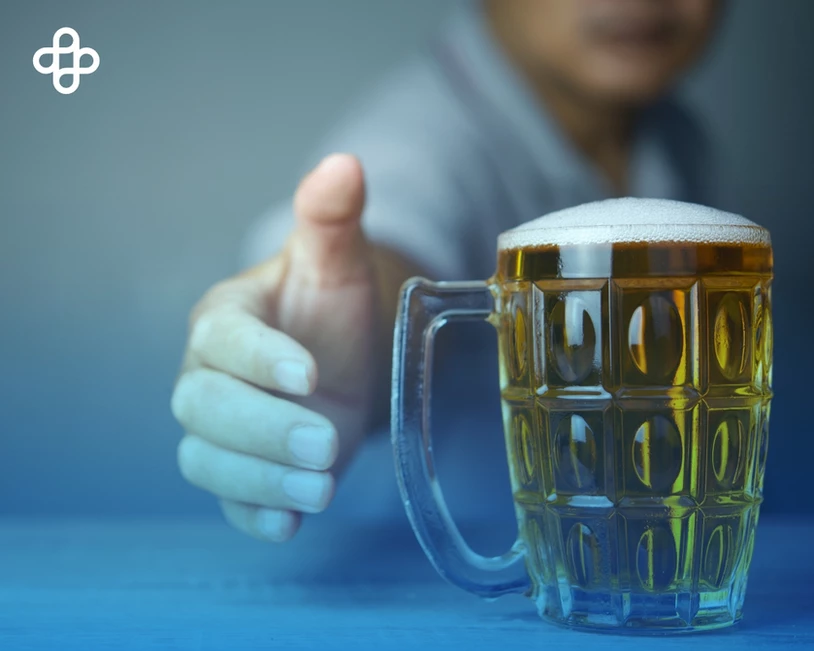Ultimate Guide to Gastritis Prevention. Gastritis prevention involves avoiding substances that can inflame the stomach lining.
It is crucial to learn how to prevent it to avoid future complications. Below, we detail some points to prevent and combat gastritis:
Alcohol Consumption: Excessive alcohol consumption can cause gastritis, so drink in moderation.
Quit Smoking: Smoking introduces chemical agents that irritate the stomach lining, making you more susceptible to gastritis and ulcers.
Reduce Stress: Mood changes can trigger gastritis, so stress reduction is essential.
Avoid Aspirin Use: Aspirin or ibuprofen irritates the stomach lining and can cause gastritis. If necessary, take acetaminophen to relieve pain.
Eat Slowly and Chew Well: This eases the workload on your digestive system, preventing stomach strain.
Maintain a Healthy Weight: Like most diseases, obesity exacerbates gastritis.
Adopt Healthy Eating Habits: Include healthy foods such as vegetables, fruits, and whole grains in your diet.
Ultimate Guide to Gastritis Prevention
Prevention of H. pylori Infection: Bacteria transmitted through consuming contaminated food. It is advisable to undergo a test to rule out this infection as it can lead to severe consequences in the long term.
Try not to consume heavy meals. Opt for smaller, frequent meals, being careful not to overeat too often, as this increases acid secretion.
Also, avoid irritating or flatulence-inducing foods, such as cabbage, radishes, broccoli, onions, peas, dried beans, milk, spicy foods with peppers, black and red peppers, chili, tea, cola, coffee, and chocolate.
Ultimate Guide to Gastritis Prevention. Avoid irritating or flatulence-inducing foods. Other considerations. It is also advisable to be familiar with the basics of a suitable diet for a sensitive stomach, also known as a “soft diet,” which includes the following list of foods:
Allowed Foods:
Beef, veal (boiled, roasted, or baked, without fat), skinless chicken (boiled or roasted), ham, natural-cooked fish and seafood; apples and pears cooked or pureed, vegetable, meat, and white rice soups, all with low salt; eggs in any form but without fat, white and whole wheat bread, vegetables without oil, yogurt, and cheese.
Prohibited Foods:
Oranges, grapefruits, lemons, strawberries, and kiwi, among other citrus fruits. Spices, mayonnaise, mustard, ketchup, butter, margarine, vinegar, sodas. Chocolate, coffee, milk, sauces, fats, fried foods, canned goods, processed meats, spicy foods, tobacco, and alcohol.
On the pharmacological side, antacids and other medications that decrease or neutralize gastric acid in the stomach alleviate symptoms and contribute to healing. If an individual is prone to gastritis, drugs known to cause it, such as anti-inflammatories and aspirin, should be discontinued or avoided as much as possible.

Stress is a crucial factor that often conditions increased gastric acid production. Therefore, managing stress plays a significant role in treating this condition.
Most chronic gastritis (of long duration) does not manifest severe or constant symptoms. Its potential complications are blood loss and an increased risk of gastric cancer, making medical attention essential for an accurate diagnosis. Receiving appropriate treatment and closely monitoring the disease’s progression are crucial.
If gastritis is suspected, it is advisable to combat the disease in its early stages, as treatments will be more effective, preventing your body from suffering serious illnesses and irreversible damage.
The doctor will inquire about your medical history, symptoms, and medications. The doctor will also perform a physical examination and may request an upper gastrointestinal endoscopy (GI) with biopsies or other tests.
NIDDK
Finally, If you want to learn more, visit our article on Discover How to Alleviate Discomfort and Prevent Gastritis: Symptoms and Useful Tips.





